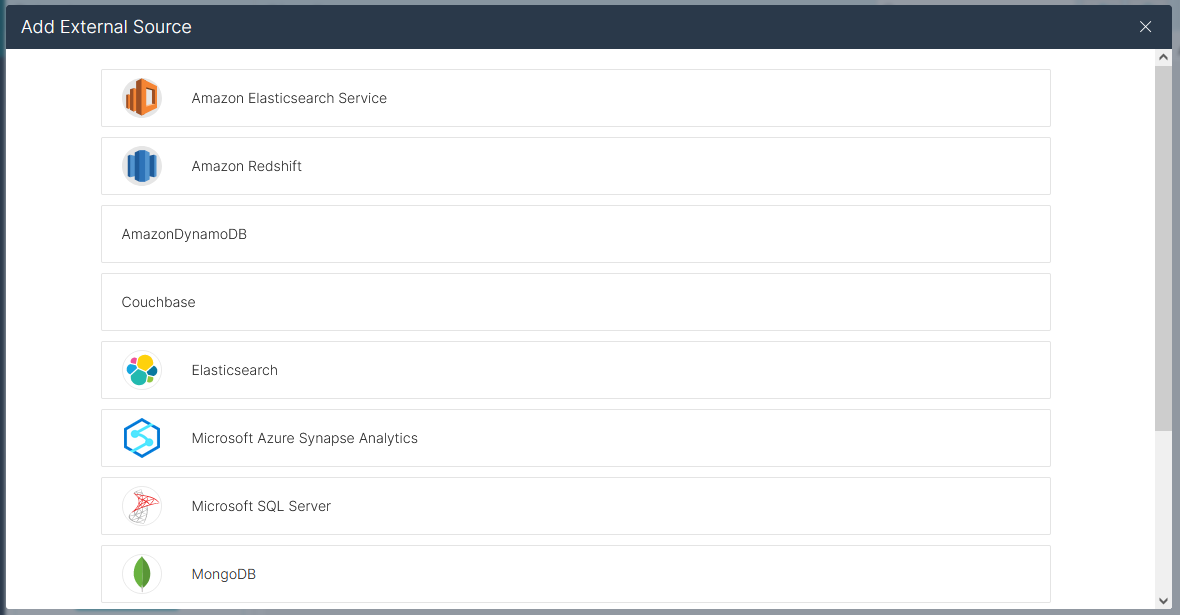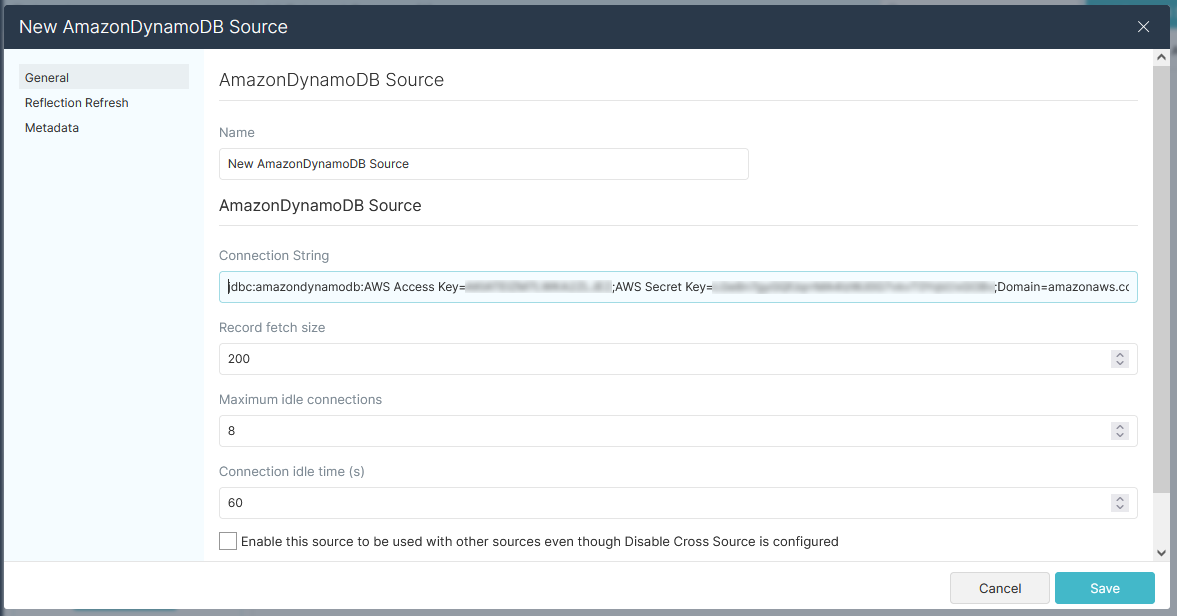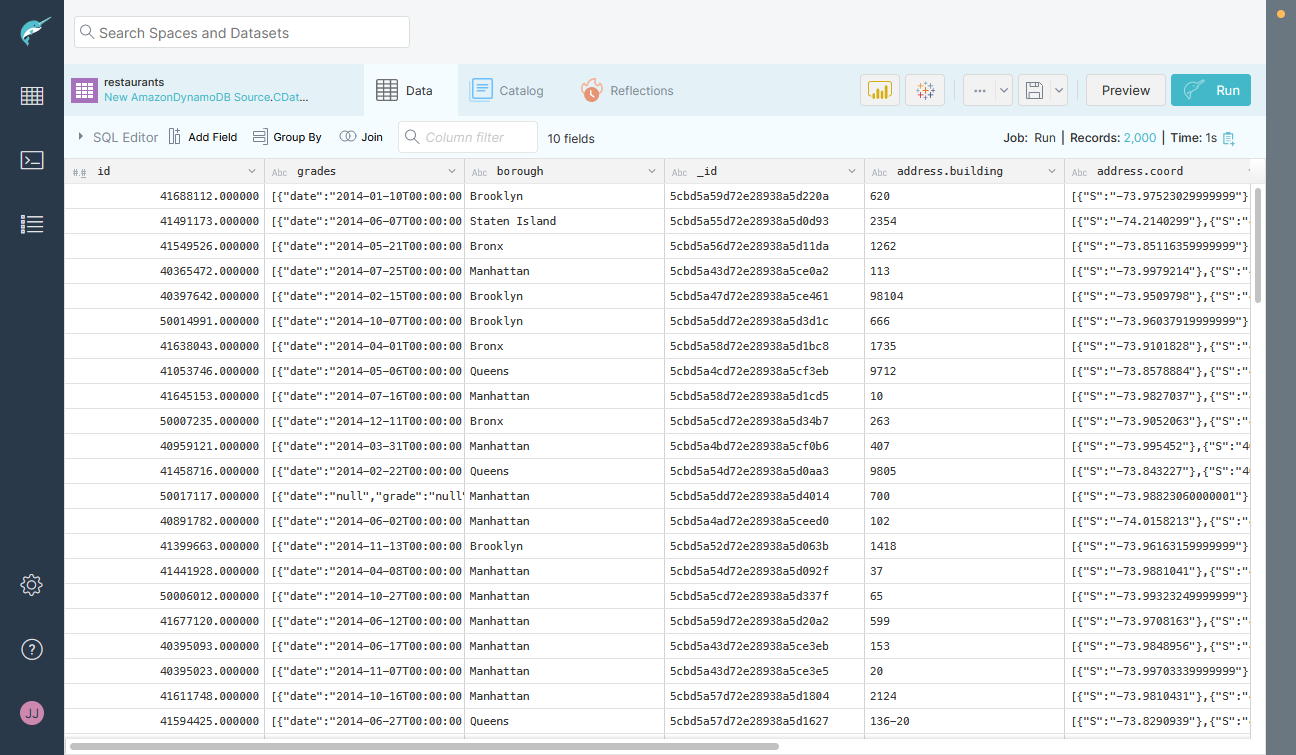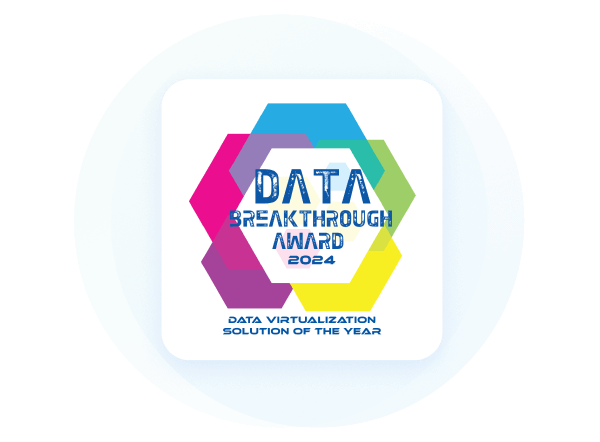Discover how a bimodal integration strategy can address the major data management challenges facing your organization today.
Get the Report →Connect to AlloyDB Data in as an External Source in Dremio
Use the CData JDBC Driver to connect to AlloyDB as an External Source in Dremio.
The CData JDBC Driver for AlloyDB implements JDBC Standards and allows various applications, including Dremio, to work with live AlloyDB data. Dremio is a data lakehouse platform designed to empower self-service, interactive analytics on the data lake. With the CData JDBC Driver, you can include live AlloyDB data as a part of your enterprise data lake. This article describes how to connect to AlloyDB data from Dremio as an External Source.
The CData JDBC Driver enables high-speed access to live AlloyDB data in Dremio. Once you install the driver, authenticate with AlloyDB and gain immediate access to AlloyDB data within your data lake. By surfacing AlloyDB data using native data types and handling complex filters, aggregations, & other operations automatically, the CData JDBC Driver grants seamless access to AlloyDB data.
Build the ARP Connector
To use the CData JDBC Driver in Dremio, you need to build an Advanced Relation Pushdown (ARP) Connector. You can view the source code for the Connector on GitHub or download the ZIP file (GitHub.com) directly. Once you copy or extract the files, run the following command from the root directory of the connector (the directory containing the pom.xml file) to build the connector.
mvn clean install
Once the JAR file for the connector is built (in the target directory), you are ready to copy the ARP connector and JDBC Driver to your Dremio instance.
Installing the Connector and JDBC Driver
Install the ARP Connector to %DREMIO_HOME%/jars/ and the JDBC Driver for AlloyDB to %DREMIO_HOME%/jars/3rdparty. You can use commands similar to the following:
ARP Connector
docker cp PATH\TO\dremio-alloydb-plugin-20.0.0.jar dremio_image_name:/opt/dremio/jars/
JDBC Driver for AlloyDB
docker cp PATH\TO\cdata.jdbc.alloydb.jar dremio_image_name:/opt/dremio/jars/3rdparty/
Connecting to AlloyDB
AlloyDB will now appear as an External Source option in Dremio. The ARP Connector built uses a JDBC URL to connect to AlloyDB data. The JDBC Driver has a built-in connection string designer that you can use (see below).

Built-in Connection String Designer
For assistance in constructing the JDBC URL, use the connection string designer built into the AlloyDB JDBC Driver. Double-click the JAR file or execute the jar file from the command line.
java -jar cdata.jdbc.alloydb.jar
Fill in the connection properties and copy the connection string to the clipboard.
The following connection properties are usually required in order to connect to AlloyDB.
- Server: The host name or IP of the server hosting the AlloyDB database.
- User: The user which will be used to authenticate with the AlloyDB server.
- Password: The password which will be used to authenticate with the AlloyDB server.
You can also optionally set the following:
- Database: The database to connect to when connecting to the AlloyDB Server. If this is not set, the user's default database will be used.
- Port: The port of the server hosting the AlloyDB database. This property is set to 5432 by default.
Authenticating with Standard Authentication
Standard authentication (using the user/password combination supplied earlier) is the default form of authentication.
No further action is required to leverage Standard Authentication to connect.
Authenticating with pg_hba.conf Auth Schemes
There are additional methods of authentication available which must be enabled in the pg_hba.conf file on the AlloyDB server.
Find instructions about authentication setup on the AlloyDB Server here.
Authenticating with MD5 Authentication
This authentication method must be enabled by setting the auth-method in the pg_hba.conf file to md5.
Authenticating with SASL Authentication
This authentication method must be enabled by setting the auth-method in the pg_hba.conf file to scram-sha-256.
Authenticating with Kerberos
The authentication with Kerberos is initiated by AlloyDB Server when the ∏ is trying to connect to it. You should set up Kerberos on the AlloyDB Server to activate this authentication method. Once you have Kerberos authentication set up on the AlloyDB Server, see the Kerberos section of the help documentation for details on how to authenticate with Kerberos.

NOTE: To use the JDBC Driver in Dremio, you will need a license (full or trial) and a Runtime Key (RTK). For more information on obtaining this license (or a trial), contact our sales team.
Add the Runtime Key (RTK) to the JDBC URL. You will end up with a JDBC URL similar to the following:
jdbc:alloydb:RTK=5246...;User=alloydb;Password=admin;Database=alloydb;Server=127.0.0.1;Port=5432
Access AlloyDB as an External Source
To add AlloyDB as an External Source, click to add a new source and select AlloyDB. Copy the JDBC URL and paste it into the New AlloyDB Source wizard.

Save the connection and you are ready to query live AlloyDB data in Dremio, easily incorporating AlloyDB data into your data lake.

More Information & Free Trial
Using the CData JDBC Driver for AlloyDB in Dremio, you can incorporate live AlloyDB data into your data lake. Check out our CData JDBC Driver for AlloyDB page for more information about connecting to AlloyDB. Download a free, 30 day trial of the CData JDBC Driver for AlloyDB and get started today.






